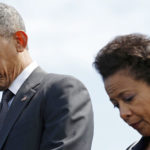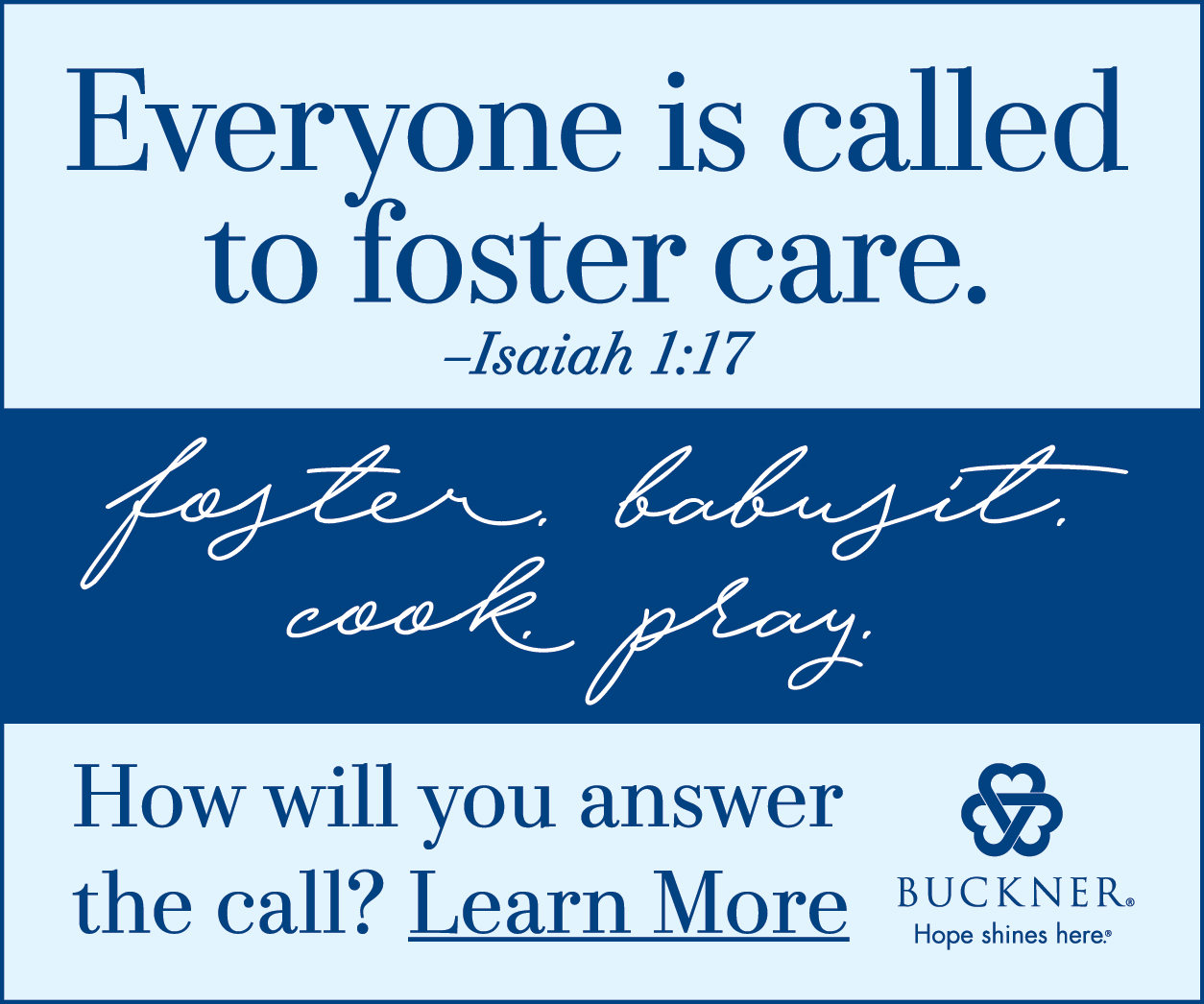Posted: 4/16/07
Faith-based positions of
presidential hopefuls compared
By Robert Marus
ABP Washington Bureau
WASHINGTON (ABP) — Perhaps the only thing more mind-boggling than the quantity of presidential hopefuls in 2008 is the array of faith-based views represented among the candidates themselves.
Consider profiles of the top candidates in each major party. The profiles include notes about their faith background, their perception among conservative religious voters and their positions on selected major issues that interest religious voters of all ideologies.
| Compare the Candidates: Republicans John McCain Mitt Romney Rudolph Giuliani Democracts • View as a graphical chart |
Current Republican front-runners
Arizona Sen. John McCain
Faith background: McCain was raised in the Episcopal Church and still calls himself an Episcopalian. However, he and his wife reportedly are long-time attendees at North Phoenix Baptist Church, a large Southern Baptist congregation in Phoenix.
Relationship with Religious Right: McCain has amassed a voting record that is, overall, strongly socially conservative. Still, his efforts on campaign-finance reform long angered some conservative leaders who feared his plan could reduce the effectiveness of anti-abortion groups. He angered the Religious Right with a 2000 speech during his first presidential run in which he assailed broadcasters Jerry Falwell and Pat Robertson as “agents of intolerance” who were bad for religion and politics.
Last year, in a move widely viewed by political observers to be an attempt to mend fences before for his 2008 presidential run, McCain delivered a speech at Falwell’s Liberty University in Lynchburg, Va. It was reportedly well received.
On abortion: McCain opposes legalized abortion in most cases and supports overturning Roe v. Wade, the 1973 Supreme Court decision that legalized abortion. He also has voted in favor of bills expanding federal funding for embryonic stem-cell research. Many anti-abortionists view such research as tantamount to abortion because the extraction of stem cells kills the embryos.
On gay rights: McCain’s record on gay rights is somewhat mixed. While he voted to kill a proposed federal constitutional amendment banning same-sex marriage, he endorsed a similar amendment on the state level in Arizona. He has said he believes the issue should be settled by the states.
For the last three two-year sessions of Congress, McCain received scores of 33 percent (109th Congress), 25 percent (108th Congress) and 14 percent (107th Congress) from the Human Rights Campaign. The gay-rights group rates members of Congress based on their votes on gay-related issues. A higher percentage indicates more gay-friendliness than a lower percentage.
On Iraq: McCain voted to authorize President Bush to go to war in Iraq. While he has sometimes criticized how Bush has conducted the war, he remains one of the staunchest opponents of pulling American troops out of Iraq.
On the relationship between church and state: While McCain has voted to uphold government endorsements of religion, he has also decried some of the Religious Right’s rhetoric. He has voted to confirm all of President Bush’s picks for the federal courts— including several about whom church-state separationist groups expressed concerns. McCain also has been a longtime supporter of expanding the government’s ability to fund social services through churches and other religious charities. McCain has been a strong supporter of government-funded voucher programs that include religious schools.
Back to Top
Former Massachusetts Gov. Mitt Romney
Faith background: Romney is a member of the Church of Jesus Christ of Latter-day Saints. He would be the first Mormon nominated for the presidency by a major party.
Relationship with Religious Right: The former governor of one of the nation’s most liberal states campaigned for his previous offices by expressing views decidedly to the left of some he currently espouses. Some conservative evangelical leaders have expressed discomfort over his history. In addition, several evangelical groups—notably, the Southern Baptist Convention—have denounced Mormonism as a cult or a deviation from Christianity. Polls show that somewhere between a quarter and a third of potential voters would not vote for a Mormon president.
On abortion: In a recent speech to a group of South Carolina Democrats, Romney declared himself “firmly pro-life.” However, he has come under withering criticism from Democrats and those in his own party for his changing stances on abortion rights. In his campaigns for Massachusetts governor, he said he would enforce a woman’s right to choose abortion.
On gay rights: In a failed 1994 Senate campaign to unseat liberal stalwart Sen. Edward Kennedy (D-Mass.), Romney famously wrote a letter seeking support from the gay group Log Cabin Republicans. In it, he said, “We must make equality for gays and lesbians a mainstream concern” and promised to do more to advance gay rights in the Senate than Kennedy would.
More recently, Romney has been hailed as a celebrity in resistance to gay rights. After Massachusetts became the first state in the nation to legalize same-sex marriage in 2005, Romney led efforts to pass a state constitutional amendment to revoke the practice. He has spoken around the country in support of two failed efforts to pass a similar amendment to the federal Constitution. In the past, he has said gay marriage should be decided by the states.
When the 1994 Log Cabin letter came to light late last year, Religious Right leaders expressed suspicion.
“This is quite disturbing,” said Tony Perkins, president of the Family Research Council, according to the conservative website NewsMax.com. “This type of information is going to create a lot of problems for Gov. Romney.”
On Iraq: Romney supports Bush’s Iraq policy, including his decision to “surge” the number of U.S. troops in Iraq by more than 20,000. He has offered some criticisms of the way Bush has handled the war, but they have been more muted than McCain’s critiques.
On the relationship between church and state: Romney has supported government endorsements of religious faith, including keeping religious slogans and items on currency and government property. He has also been a supporter of government funding for religious charities.
Back to Top
Former New York Mayor Rudolph Giuliani
Faith background: Giuliani is a lifelong Roman Catholic, although many of his social views are at odds with the church’s official teachings. In a 1994 speech on religion, delivered shortly after he became mayor, Giuliani said Catholicism provided a moral and intellectual framework for his life.
“The church has built the road that allows my intellect to traverse to the outer reaches of what is comprehensible and, at that point, the church offers a leap of faith to carry me where my intellect cannot go,” he said, according to the New York Times. “For me, being a Catholic is not limiting but liberating.”
Relationship with Religious Right: Religious Right leaders have viewed Giuliani with great suspicion because of his moderate-to-liberal views on several social issues. Religious Right leaders have also expressed dissatisfaction with Giuliani’s personal life, which includes three marriages—the second of which ended in a messy, public way while he was still mayor —and strained relationships with his children.
However, a recent poll of evangelical Republican voters by the Pew Forum on Religion and Public Life showed Giuliani besting other GOP hopefuls.
And, in an echo of McCain, Giuliani was scheduled to speak April 17 at Regent University, the Virginia Beach, Va., school founded by Pat Robertson.
On abortion: Giuliani’s long-stated position is similar to that of many Democrats. He has said that, while he personally disapproves of it, he believes it should nonetheless remain legal. In a recent Fox News interview, he said of abortion, “I hate it.” He added: “I think abortion is something that, as a personal matter, I would advise somebody against. However, I believe in a woman’s right to choose.”
Nonetheless, he has also reportedly begun telling Republican audiences in presidential primary states that he would appoint only “strict constructionist” judges to the federal judiciary. Many abortion opponents take that as an indication that he would appoint judges likely to believe that Roe v. Wade was wrongfully decided and that the Constitution does not protect abortion rights.
On gay rights: Giuliani opposes legalizing same-sex marriage, but he has been a strong supporter of gay rights in almost every other respect. Among the gay-rights provisions he supported was a domestic-partnership law that provides gay New York couples with similar protections and responsibilities as married couples. He has also marched in gay-pride parades. According to multiple news reports, during his second divorce he temporarily lived with a gay couple who were his close friends. He opposes a federal constitutional ban on same-sex marriage.
On Iraq: Giuliani, like McCain and Romney, supports Bush’s troop surge and opposes pulling the troops out anytime soon.
On the relationship between church and state: Giuliani has spoken little about his support for government expressions of religion or government support for religious charities. In a debate during his 2000 senatorial bid—he withdrew from the contest after a cancer diagnosis—he defended the Ten Commandments as an integral part of Western history. He has also said he opposes government-sanctioned prayer in public schools.
In the 1994 speech, he called for believers and non-believers alike to tolerate each other in civil society: “I will work as hard to protect someone’s right to believe in God … (as) not to believe in God, because I realize that my right to practice my religion depends completely on my commitment to defend someone else’s right to practice theirs.”
As mayor, Giuliani advocated a school-voucher plan that included religious schools.
Back to Top
Current Democratic front-runners
New York Sen. Hillary Clinton
Faith background: Clinton is a cradle-roll Methodist and has been active in the United Methodist Church most of her life. She is also reportedly a regular participant in one of the many small-group Bible studies comprised of members of Congress. The top-secret meetings are closed to outsiders and the press.
Relationship with Religious Right: While evangelicals have been highly suspicious of Clinton and her husband, she has made some attempts to reach out to them in preparation for her presidential bid.
On abortion: Clinton is a longstanding supporter of abortion rights, but she has attempted to moderate her public rhetoric on the issue. In a widely reported 2005 speech on abortion rights, Clinton continued to endorse legalized abortion but also called it a “sad, even tragic, choice to many, many women” and appealed to anti-abortion groups and abortion-rights supporters to find “common ground” on ways to reduce the number of abortions.
Most anti-abortion groups were critical of the speech. They noted that Clinton still opposes banning a late-term abortion procedure pro-lifers label “partial-birth abortion.”
On gay rights: Clinton opposes full same-sex marriage, but she supports the legal equivalent— known as “civil unions.” However, she has also said she would not oppose a New York state law legalizing gay marriage if it wins the support of a majority of state legislators. She opposes a federal constitutional amendment banning gay marriage.
On Iraq: Clinton was one of the Democratic senators who voted in favor of authorizing Bush to go war in 2002. Despite demands from anti-war Democratic activists, she has declined to apologize for that vote, saying Bush misled her and her colleagues into believing the war was justified because Iraq threatened the United States.
She has advocated a gradual “phased redeployment” of American troops in Iraq in order to get them out of the war zone. She also opposed Bush’s “surge” plan.
On the relationship between church and state: Clinton supports using religious groups to provide secular social services but has opposed some of Bush’s attempts to expand their ability to do so. In a 2005 speech, she reportedly said some politicians had created a “false division” between supporting church-state separation and supporting the provision of non-religious public services by religious groups.
In her 2000 senatorial campaign, she opposed the posting of the Ten Commandments in public schools, saying it would violate the Constitution.
Illinois Sen. Barack Obama
Faith background: Obama has said he was raised in a secular household, the child of a Kenyan immigrant father who was a Muslim-turned-atheist and an irreligious mother whose parents were non-practicing Protestants. After working as a community organizer with African-American churches on Chicago’s South Side, he made a conscious decision to become a Christian and join Trinity United Church of Christ.
He said he had doubts about some aspects of Christian doctrine. “But, kneeling beneath that cross on the South Side (of Chicago), I felt I heard God’s Spirit beckoning me,” he said, noting that he realized all humans were sinful and had intellectual doubts about God.
Relationship with Religious Right: Older, more established Religious Right leaders have been highly critical of Obama’s support for abortion rights. However, he has enjoyed a positive relationship with younger and more progressive evangelicals. He gave a highly publicized speech last year to a Christian anti-poverty conference in which he called on progressives to reclaim a moral vocabulary when talking about economic justice.
Later in 2006, Obama was one of the headlined speakers at an evangelical conference on preventing the spread of AIDS hosted by evangelical superstar Rick Warren, pastor of one of the nation’s largest congregations. While several conservative evangelical leaders wrote a public letter criticizing Warren for allowing a pro-choice politician to speak from the pulpit of his Saddleback Church near Los Angeles, Warren and Obama both brushed off the criticism.
“While we will never see eye to eye on all issues, surely we can come together with one voice to honor the entirety of Christ’s teachings by working to eradicate the scourge of AIDS, poverty and other challenges we all can agree must be met,” Obama said, in a statement responding to the critique.
On abortion: Obama supports abortion rights and voted against a statewide ban on “partial-birth” abortions when he was in the Illinois Legislature. In his campaign autobiography, The Audacity of Hope, he told a story from his 2004 Senate campaign about encountering an abortion protester who told him, “‘I pray that you have a change of heart.’“
Obama continued: “Neither my mind nor my heart changed that day, nor did they in the days to come. But that night, before I went to bed, I said a prayer of my own—that I might extend the same presumption of good faith to others that had been extended to me.”
On gay rights: Like Clinton, Obama opposes full same-sex marriage and supports civil unions. However, he wrote in The Audacity of Hope that he remains “open to the possibility that my unwillingness to support gay marriage is misguided … I may have been infected with society’s prejudices and predilections and attributed them to God.”
He also opposes a constitutional ban on same-sex marriage.
On Iraq: Obama opposed the war from its inception, when he was still a state senator. He also campaigned for the U.S. Senate in 2004 as an anti-war candidate. He has introduced a bill in Congress that would withdraw the vast majority of U.S. troops from Iraq within a year.
On the relationship between church and state: Obama has said he believes in church-state separation but doesn’t believe in separating religious beliefs from public life. In his 2006 speech to Christian anti-poverty activists, he said, “To say that men and women should not inject their ‘personal morality’ into public-policy debates is a practical absurdity. If we progressives shed some of these biases, we might recognize some overlapping values that religious and secular people share.”
Sign up for our weekly edition and get all our headlines in your inbox on Thursdays
Former North Carolina Sen. John Edwards
Faith background: Edwards was raised and baptized in a Southern Baptist church in North Carolina. His parents remain active members of the First Baptist Church in Robbins, N.C. Edwards became a Methodist as an adult. In a recent Beliefnet interview, he said he and his wife, Elizabeth, attended church regularly after they married, but their faith didn’t become an intense daily activity until after the death of their 16-year-old son, Wade, in a 1996 automobile accident.
Now, Edwards said, “It’s important in my case to have a personal relationship with the Lord, so that I pray daily and I feel that relationship all the time.”
Relationship with Religious Right: Edwards’ views on abortion rights have won him few fans among conservative Christian leaders, despite his Baptist connections. However, Clemson University political scientist Laura Olson said Edwards has demonstrated an ability to “speak ‘evangelical-ese’“ and use religious language to talk about “the immorality of poverty.”
“If he can bring that back, that is absolutely the kind of thing that is going to … play pretty well with religious Americans, regardless of what religious tradition you are part of,” she said. “I mean, evangelicals care about poverty.”
On abortion: Edwards is a long-time supporter of abortion rights; he opposed the federal partial-birth abortion ban. In 2003, NARAL Pro-Choice America, one of the nation’s largest abortion-rights groups, gave him a perfect 100 percent pro-choice rating for his voting record on abortion.
On gay rights: Like Obama and Clinton, Edwards has said he personally opposes legalizing gay marriage but supports civil unions. During his 2004 presidential bid, he reportedly said he believes gay marriage should be an issue decided by the states. While in the Senate, he opposed a federal constitutional amendment banning same-sex marriage.
In a speech late last year in New Hampshire, he said he had struggled mightily with his opinion on legalizing same-sex marriage. “Civil unions? Yes. Partnership benefits? Yes,” he said, according to the Associated Press. “But it’s a jump for me to get to gay marriage. I haven’t yet got across that bridge.”
On Iraq: In the Senate in 2002, Edwards voted to authorize going to war. Since then, he has apologized for that vote and proposed withdrawing all U.S. troops from the war zone within a year and a half.
In a 2005 Washington Post opinion column, Edwards said, “The world desperately needs moral leadership from America, and the foundation for moral leadership is telling the truth.” He urged America to admit it was wrong to go to war. “While we can’t change the past, we need to accept responsibility, because a key part of restoring America’s moral leadership is acknowledging when we’ve made mistakes or been proven wrong— and showing that we have the creativity and guts to make it right,” he wrote.
On the relationship between church and state: In his Beliefnet interview, Edwards staked out a position on moral and religious impulses informing policy much like Obama’s.
“I do believe in the separation of church and state. But I don’t think separation of church and state means you have to be free from your faith,” he said. “My faith informs everything I think and do. It’s part of my value system. And to suggest that I can somehow separate and divorce that from the rest of me is not possible.”
However, he added, “I would not, under any circumstances, try to impose my personal faith and belief on the rest of the country.”















We seek to connect God’s story and God’s people around the world. To learn more about God’s story, click here.
Send comments and feedback to Eric Black, our editor. For comments to be published, please specify “letter to the editor.” Maximum length for publication is 300 words.